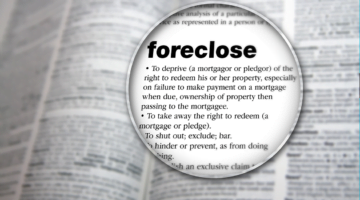If you’re facing legal trouble and need information on specific legal issues, this section offers articles on a wide variety of legal topics and provides quick access to online legal experts and helpful related services and resources.
What if I can’t afford a lawyer?
We have information and links to publicly funded Legal Aid Centers in every major city in the country. These low and no-cost legal centers are staffed by social justice advocates who assist people with various legal matters such as domestic violence, divorce, child custody, eviction, foreclosure, and landlord-tenant disputes.
Divorce Legal Advice
Considering divorce? Watch our video summary on the divorce process:
For most people, going through a divorce is a life-changing experience with legal, financial, and well-being implications, especially when it involves young children and parent alienation. In our legal advice blogs we break down the divorce law process for you.
In this section, learn about the different ways a marriage can be legally dissolved and the specific divorce and legal separation laws in your state.
Know the difference between community and separate property laws and how personal and real property is divided between the parties. If there are children between the spouses, learn how child custody, visitation, and support rights and obligations are determined and how courts enforce child and spousal support orders.
You will also learn about prenuptial and marital settlement agreements and the benefits of mediating versus litigating your divorce.
Finally, you will learn how to emotionally heal from the divorce process and whether the time is right to consider post-divorce dating.
Divorce Law By State
Divorce lawyers and helpful services
Our helpful services section provides legal advice and links to local divorce lawyers and mediation centers. Read valuable articles on:
- divorce counseling
- wellbeing services
- short-term emergency lenders
- childcare assistance
- moving services
- storage services
- apartment locate services
- Private Investigators
Injury And Accidents Legal Advice
Injured in an accident? Watch our video summary on personal injury law:
This accident and personal injury law section provides legal advice articles explaining how accident victims recover compensation for their injuries and how personal injury settlements are paid out.
You will also learn about the risks of going to trial versus settling your case.
Establishing liability
The most common legal basis for establishing liability is under negligence laws. In such cases, the injured party, called the plaintiff, must prove by a preponderance of the evidence that the party at fault, called the defendant, acted negligently and that such negligence was a factual and legal cause of the plaintiff’s injuries and resulting economic and general damages.
The litigation process
The personal injury litigation process comprises many moving parts and includes different types of judicial proceedings. It starts with the drafting, filing, and serving of a civil complaint, followed by the defendant’s responsive pleadings.
In the discovery phase, both sides take depositions of the parties and witnesses, make physical inspections, propound, and respond to written discovery, retain experts, and otherwise prepare for trial.
Personal injury trial
This legal advice section also describes the different phases of the personal injury jury trial including:
- jury selection
- opening statements
- examination of witnesses
- admission of evidence
- closing argument
- jury instructions
- jury deliberation
- verdict or hung jury
- post-trial motions
Types of injuries and accidents
Suffering a debilitating injury is life-changing physically and can impact you financially since there are usually medical bills to pay and medicine to purchase.
See our discussion on medical bankruptcy. Depending on the severity of your injury, you will likely have lost time from work.
Depending on your financial situation, if you need a loan but lack sufficient collateral, consider receiving a quote from a personal injury lender. These are specialized lenders that depending on the estimated value of your case, will lend you money in exchange for you granting the lender a lien against your personal injury claim.
While you recover from your injuries at home, you may wish to learn about remote education and degree programs, vocational training, and online home-based employment options.
Personal injury lawyers and helpful services
This section includes articles on:
- low-cost medical centers
- low-cost online pharmacies
- medical equipment suppliers
- emotional wellbeing counseling
- personal injury lenders
Crimes – Criminal Courts Legal Advice
Arrested? Watch our video summary on your legal rights and the criminal justice system:
This legal advice section covers major crime categories of U.S criminal law:
- types of crimes against persons and property
- drug sales and trafficking
- fraud and theft offenses
- sex crimes and pornography
- sexting with a minor
- juvenile crimes
- impaired driving (DUI)
- hate crimes
- white collar crime
- murder and manslaughter
Criminal justice system
This section examines the criminal justice system and includes legal advice articles on search and seizure laws and how their violations can result in excluding otherwise admissible evidence from trial.
We also cover the major stages of a felony prosecution, including the indictment phase, pretrial discovery, trial, post-trial motions, sentencing, and imprisonment.
Bail
This section examines the bail bond process and the costs and risks of posting bail. You will also learn how the court and the specific terms and conditions of a bail release set bail amounts.
Criminal lawyers and helpful services
Our helpful services for criminal legal advice include not only local criminal defense lawyers but also listings of local bail bond services, and depending on your financial circumstances, you might qualify for a loan from a list of short and long-term lenders in our emergency lending section.
Types of Federal And State Prisons
State and Federal Prisons By State
Federal Prisons By State
Nothing is more life-changing than entering the prison system for the first time. It is also a life-changing experience for the spouse and children left behind. This section focuses on the emotional and financial challenges of those families left behind.
For those looking for a friend or family member who has been recently arrested, there are links to services that will help you find that person, where they are being held, and how to contact them. We also include links for those spouses and children of prisoners left behind:
- prison visitation services
- spouse and children’s financial assistance
- support groups
- emotional counseling
Employment Law Legal Advice
Got fired? Trouble on the job? Watch our video summary on employee legal rights:
In our employment law section, you’ll find information on the legal issues surrounding job interviews, the hiring process, and the legal distinction between being hired as an employee versus an independent contractor.
You’ll learn whether a job applicant can be compelled to take a drug test as a condition of their employment – and once you are employed, whether the employer can force you to take periodic drug tests as a continued condition of employment.
Wage and hour laws
Get free legal advice about federal and state labor laws and under what circumstances an employee must be paid minimum wage, overtime, and compensation for family and medical leave.
In our wrongful termination section, read about employees’ rights and protections on the job, such as the right to safe and legal working conditions. Find legal advice articles on what employees can do to stop employers from emotionally abusing them or violating their right to privacy.
Sexual harassment
Legal working conditions also include federal and state laws prohibiting employers from engaging in sexual harassment of their employees or allowing their place of business to turn into a sexually charged hostile workplace.
Wrongful termination based on discrimination
Regarding what constitutes unlawful or wrongful termination, employers are prohibited by state and federal law from terminating an employee if the termination was based on an illegal purpose, such as discrimination of a protected class, including race, gender, age, ethnicity, religion, and disability.
Retaliatory termination
Unlawful employer behavior also includes terminating an employee for being a whistleblower of their employer’s dangerous or illegal acts to a government agency or public official. Terminating an employee in retaliation for “blowing the whistle” on their employer is a public policy violation of the law and a separate offense.
Should the company be sued for retaliatory termination, the company can be liable for the employee’s economic and general damages and, if warranted, punitive damages.
Employment lawyers and helpful services
Our helpful services legal advice section on employment includes:
- employment search sites
- resume services
- online college degree programs
- work from home online copywriting
Elder and Estate Law Advice
Watch our video summary on the legal rights of older adults and the basics of estate law planning:
Our elder law and estate law-free legal advice section focuses on older adults’ legal, financial, and emotional needs and provides helpful information for the family and friends who care for them.
This section also includes information on eligibility for Social Security retirement and disability benefits, Also learn about eligibility for Medicare and other healthcare coverage options.
Elder Abuse
This section highlights the growing problem of elder abuse, including the legal issues surrounding the emotional, physical, and financial abuse of the elderly. The most common cause of elder abuse is neglect in caring for older adults, which can result in bedsores.
We provide legal advice information on reporting elder abuse to protective services and the police and why you should consider consulting an elder law attorney.
Assisted living facilities
Reducing the risk of elder abuse and ensuring your loved one is safe and compassionately cared for requires selecting from highly-rated assisted living facilities such as board and care or nursing facilities.
In our helpful services section, you will learn about legal advice online services that screen and rate assisted living providers by the quality of care and safety record.
Estate and end-of-life planning
You will also find informative articles on estate planning. For most people, this means having an estate and trust lawyer to prepare your last will and testament and related documents.
The purpose of a will is to ensure that upon one’s death, the estate (money, property, possessions, and investments) is left to the people and causes the deceased cared about most – what is called the testator’s intended beneficiaries.
The estate will be distributed under state law if one dies without a will. The process is called intestate succession, which dictates to whom the decedent’s estate shall be distributed. In most cases, the estate is distributed among the surviving spouse, children, parents, or siblings.
Elder incapacity
As people age, they slowly lose their mental capacity to care for themselves. It can be the natural result of an aging brain or from a disease such as Dementia and Lewy body. In either case, mental incapacity makes the person unable to make medical, financial, and legal decisions independently.
Usually, the family assumes the initial responsibility of making important decisions on behalf of their loved one. Usually, an elder lawyer is consulted, and the available legal documents such as a power of attorney are drafted.
The lawyer will want to know whether the elder had signed testamentary documents such as a will and trust, power of attorney, healthcare directive, or a living will. Finally, the lawyer will want to know whether the court should set up a conservatorship.
Facing death and grief
Facing the death of a loved one is a painful and confusing time as we are also forced to face our mortality. The emotional processing of such a loss often requires the support of a grief therapist, psychologist, or counselor.
Planning a funeral
Lost a loved one? Watch our video summary on funeral planning and the consumer laws that protect you:
For the family member taking on the primary responsibility of planning the funeral, the process can feel like a surreal experience. Part of the reason is that the person arranging the funeral is usually a family member and is likely in an emotionally vulnerable state when selecting a funeral home and the products and services they offer.
Say nothing of the unfamiliar and confusing terminology they use to describe their products and services.
There are ways to stay mindful as you move through the process. We include articles covering consumers’ legal rights when selecting a funeral home and devote a whole legal advice section to explaining the funeral process, including a complete glossary of hard-to-understand funeral terms and what they mean.
We also cover different types of burials such as green burials, space burials, and ship burials. And for those who are not ready to die, you can learn about the science of cryonics.
Estate and trust lawyers and helpful services
This section connects families with services and products that help older adults remain active, engaged, and safe.
It begins with access to valuable articles on public health and government programs for the elderly, including Social Security,
Also included is a resource guide of public and private agencies that serve the needs of older adults.
The following are legal advice blogs and legal services for older adults and online access to products and services for seniors:
- elder abuse lawyers
- certified financial planners
- reverse mortgages
- assisted living finders
- discount online pharmacies
- medical equipment supply
- hearing aids
- funeral homes
- burial services
- grief counseling
Consumer Law Legal Advice
Dispute with a seller? Watch our video summary on how to protect your legal rights as a consumer of products:
Consumer laws are essential in governing transactions between sellers of products and services and the consumers who purchase them.
Consumer fraud
In this online legal advice section, learn about your consumer rights and how to protect yourself from:
- identity theft
- timeshare fraud
- misleading warranties
- moving scams
- car repair scams
- car dealer vocabulary
- mortgage fraud
- debt relief management
- debt relief scams
- consumer protection funeral homes
Lemon law
Our consumer section examines lemon law governing the sale and purchase of defective and unrepairable new vehicles and the remedies available to car buyers under consumer protection laws.
You’ll also find valuable consumer tips on protecting your rights when purchasing a used vehicle and a helpful car-buying glossary of used car sales terms.
Data privacy laws – health and private records
Information-sharing technology has its benefits. It also has dangers when sensitive consumer records are sold and shared between companies. This legal advice section covers how you can protect your private and personal health records.
Small claims court
Here you will learn about small claims court and how it provides consumers a cost-effective way to quickly resolve low-dollar personal property and money disputes without using a lawyer.
In this section, you will learn about the jurisdictional minimum and maximum claim amounts, the consequences of losing your case, and whether you are legally allowed to appeal your case.
Debtor rights and protections
This section includes helpful and informative articles concerning your rights and protections as a buyer and debtor of consumer sellers and finance companies. This includes your debtor rights should you be served with a creditor lawsuit or be harassed by credit card collectors and collection agencies.
Consumer lawyers and helpful services:
- discount legal services
- identity theft protection
- legal aid centers
- small claims assistance
- online discount pharmacies
Immigration Law Legal Advice
Immigrating to the United States? Watch our video summary on how to apply for legal residency, visas, and the basics of U.S. immigration law:
This section offers valuable information on immigration laws governing the U.S. immigration process. You will also find details on how to apply for short or long-term admissions, apply for a Green card, and get on the path toward obtaining U.S. citizenship.
Amnesty and Asylum Status
Learn about citizenship through amnesty and the rules governing those seeking asylum and refugee status.
Criminal Deportation
Those who do not have U.S. citizenship status but reside in the United States may be deported for having committed serious felonies. Learn about the criminal deportation bond process that can result in removal from the United States.
Learn how the INS detention process works, including how to qualify for a release through a bond. In our helpful services section, you’ll find links to immigration lawyers and federal criminal defense attorneys specializing in deportation proceedings.
Immigration Lawyers and helpful services
Find free legal advice information on locating and retaining an experienced U.S. immigration attorney and other services to help you settle into your new life.
- visa services
- citizen test-preparation courses
- job search services
- apartment locate guides
- online degree programs
- moving and storage services
- deportation bond agents
Property Law Legal Advice
Facing eviction or dealing with landlord disputes? Watch our video summary on landlord-tenant laws and other types of property law disputes:
Property law is a broad category covering many types of real estate interests, from individual homeowners, landlords, and tenants, to owners of multi-unit apartment buildings and shopping centers.
Each state has its laws that regulate the use, sale, purchase, transfer, and official recording of property interests. Each state also regulates its land use and zoning laws, which include property issues such as fence and boundary disputes.
Property Disputes
State property laws govern the rights, obligations, and remedies afforded to those who own, possess, or have specific usage rights to their property.
When disputes arise, and if they cannot be resolved informally or through mediation, parties seek legal rights and obligations turn into disputes, and cannot be resolved informally, parties seek the advice of real estate and property lawyers.
The most common litigated areas of property law include:
- eviction for non-payment of rent
- zoning and land use disputes
- boundary and fence disputes
- noise and nuisance disputes
Landlord Tenant Disputes
Landlord-tenant disputes can be as minor as the tenant having to repeatedly remind the landlord to fix a leaky faucet to the landlord threatening to evict the tenant for being late on paying their rent.
While landlords have their rights under a rental agreement, so do tenants.
The tenant’s legal right to privacy and the quiet enjoyment of the property is a primary tenant’s right. Consequently, it is the landlord’s legal duty to provide the tenant with a safe and habitable home.
Both of these give rise to the property owner’s legal duty to maintain the property so that it is safe, habitable, and in good repair.
As well as the landlord’s duty to protect the tenant’s right to privacy from third-party nuisances such as excessive noise and noxious odors. Should the parties fail to resolve their disputes informally, they often resort to taking legal action.
The most common grounds for eviction are non-payment of rent and breach of the rental agreement.
Eviction and Landlord Self-Help
- tenants’ nonpayment of rent
- tenants’ receipt of eviction notice
- tenants’ refusal to vacate (tenant holdover)
- the landlord serves an eviction lawsuit on the tenant
- tenant answers the lawsuit and cross-claims against the landlord
- tenant claims retaliatory eviction
- tenant claims landlord breached tenants’ right to quiet enjoyment
- tenant claims landlord violated tenants’ privacy
- tenant claims the landlord breaches the warranty of habitability
- tenant claims the landlord unlawfully discriminated against the tenant
- the landlord uses force and self-help against the tenant
- landlord shuts off tenants’ utilities
- landlord fails to return the security deposit
Home Foreclosure
Should a homeowner fail to make their mortgage payments, the mortgage holder, usually a bank, has the right to commence legal proceedings against the homeowner and commence foreclosure proceedings.
If the bank prevails, the bank will take title to your property, which will usually result in the sale of the property. Here you will learn free legal advice about the stages of foreclosure litigation and some of the common legal options homeowners can take to avoid foreclosure.
- types of deeds
- judicial foreclosure
- non-judicial foreclosure
- short sales
- seller-financed mortgage lending
State Foreclosure Law Summaries
Property lawyers and helpful services
In our legal advice helpful services and foreclosure resource section, you’ll find valuable information and links to local:
- foreclosure defense lawyers
- bankruptcy lawyers
- full relocation services
- apartment search sites
- storage services
- online job search
- online emotional counseling
- online deep discount pharmacies
- emergency cash-out lenders
- state and federal assistance
- emotional and financial support
- credit counseling
Bankruptcy
Going through financial hardship? Watch our video summary on bankruptcy law and how to take control of your financial life:
This legal advice section is full of informative and valuable bankruptcy law articles that will assist you in learning about the laws, advantages, and disadvantages of filing for bankruptcy protection.
If you have substantial credit card debt, are unable to pay your bills, are facing eviction, or are at substantial risk of losing your home to foreclosure, you should consult with a bankruptcy attorney and learn your legal options.
Bankruptcy filings fall under the jurisdiction of federal law and are litigated in U.S. federal courts. The most common consumer bankruptcy filings are Chapters 7 and 13 of the bankruptcy code.
Learning the legal basics of bankruptcy
- secured and unsecured debt
- relief under the automatic stay
- features of Chapter 13 bankruptcy
- features of Chapter 7 bankruptcy
Our free legal advice articles also contain legal glossary terms that expand and deepen your understanding of specific bankruptcy terms and their meanings:
- secured and unsecured creditors
- grantor and grantee
- judgment creditors
- exempt property
- non-exempt property
- homestead exemption
- confirmation hearings
- medical bankruptcy
- student loans
Bankruptcy lawyers and helpful services
In our bankruptcy helpful services section, you’ll find information and links to local:
- bankruptcy attorneys
- online job search
- emergency cash-out lenders
- credit counseling
- apartment search
- home share search
- emotional counseling
- debt settlement services
- discount pharmacies
- state and federal assistance














